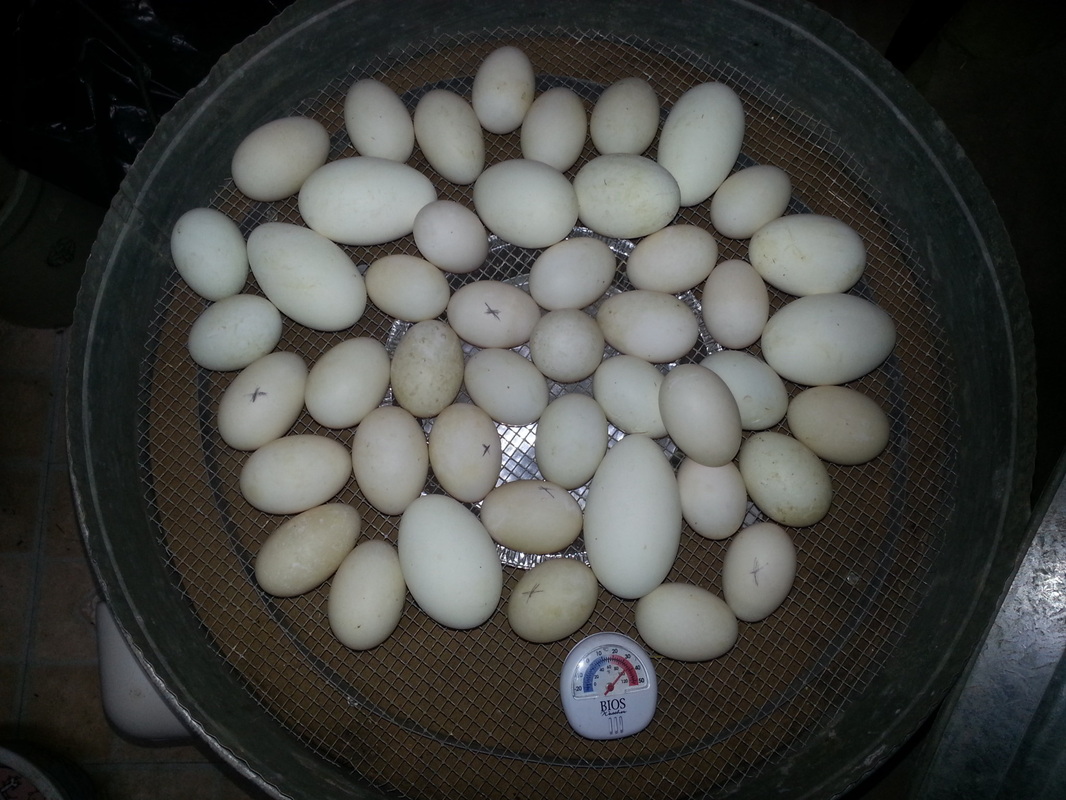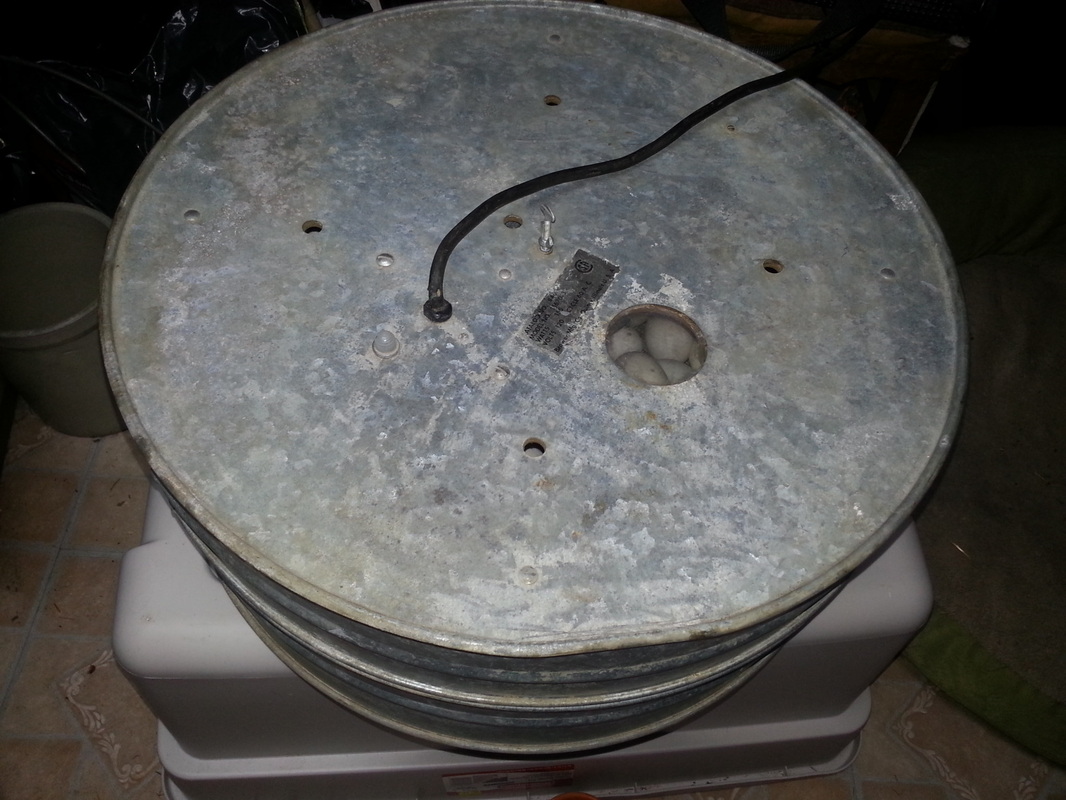My first responsibility was to familiarize myself with the Bower, so I read as much as I could find online regarding its operation and success. In its day, it was considered state of the art and hatches were as good as any in the fancy self turning, self humidifying incubators of today. The eggs lay on a screen, under which is a pan of water. Because these are duck and goose eggs, I mist them a minimum of three times daily and turn the eggs at that time as well. My little system is to mist them, then turn them, the misted side unturned and the dry side then indicating that the egg has already been turned. I have a thermometer in with the eggs. A twist of the screw on the top of the incubator regulates the temperature, so currently it is set just below 100 degrees F. The heating element is without a fan, so the eggs directly below the element stay at 100, while the eggs furthest from it, are somewhat cooler. The thermometer is placed on the outside of the egg circle so the coolest then registers no less than 98. This is not unlike the eggs under the mother duck or goose, with those directly in full contact with her breast will be the hottest, while those on the perimeter of the nest, will be cooler, but mamma duck and goose are experts with intuitive knowledge and not only turn the eggs frequently, but rotate and move their positions in the nest. It does not bother me then that at times some eggs are a bit cooler, as long as I, the mamma duck, turns and exchanges positions so the cooler ones also get a chance to be very warm.
Today, the eggs were candled, that is, a strong LED flashlight was shone through the shell in a dark room to illuminate the contents. It is very early to tell and some of the eggs, marked with an x in pencil, were added a full day after the others. Still, all the goose eggs showed vein development and most of the duck eggs as well. There were about 4, not all the late additions, that were neither duds, nor developing as quickly and one that was cracked. The contents in the cracked egg were watery in comparison and the yolk was not vivid. The eggs were collected in below zero temperatures and it is my bet that the crack was the result of a frozen egg. It was removed and will be fed to the piggies, who will be grateful for the treat. In a few more days, the eggs will be candled again, and by then, the heart should be beating and quite visible in most. The shells on the goose eggs do not afford a good look inside, but duck egg shells are almost translucent and the contents are quite visible. So far, so good. I have learned a lot and am excited to see the babies in 2 weeks. The hatch time is more or less 28 days for both ducks and geese. I have already started collecting eggs for the next hatch!



 RSS Feed
RSS Feed